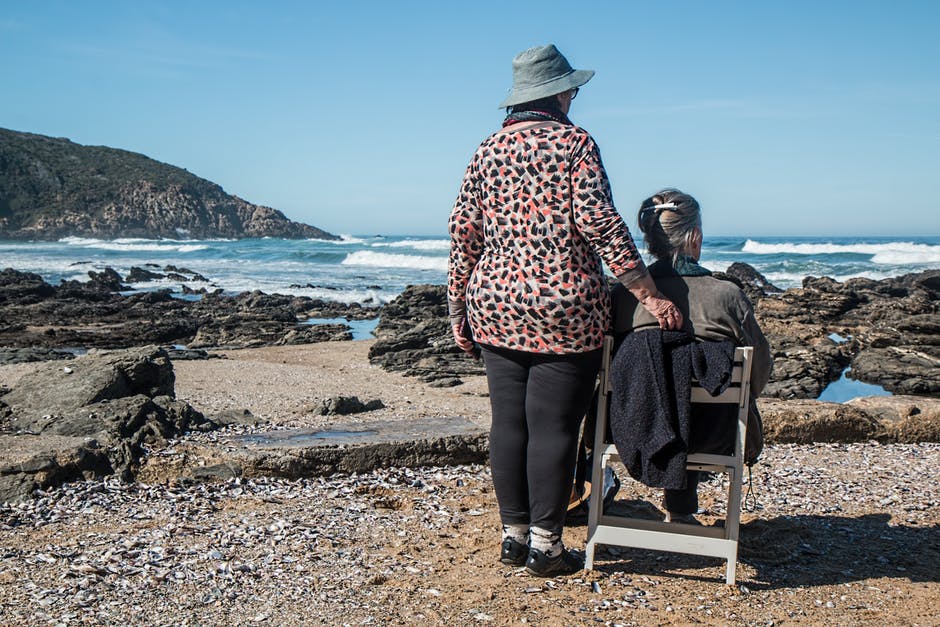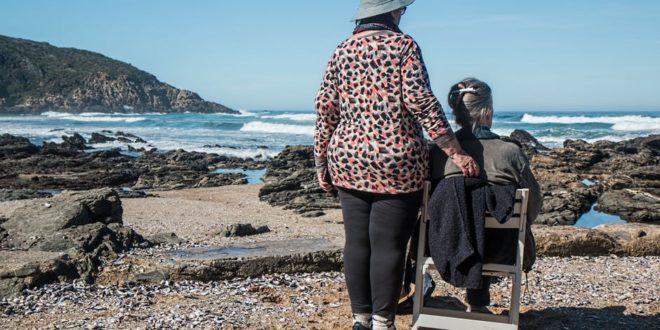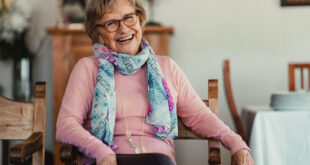New options coming on stream to help people stay in their homes for longer.
Faced with the declining health of ageing parents (aka Senior GrownUps) is never an easy time for anyone, particularly Rookie GrownUps with adult children at home finding their feet in an increasingly challenging marketplace and their own demanding careers, but there are some hot new options:
- Building granny flats if room on your section allows,
- Altering your parents’ family home to enable them to stay in it longer and tapping into support services and supplementing them if budget allows;
- Buying a townhouse or flat much closer to the family and altering it to suit and organising support services;
- Buying one of the new apartments that are coming on to the market that are specifically designed for retirement living;
- Another option is selling both homes (yours and your parents) to pool resources to buy another large property that can be suitable for you both and altering it to suit.
Supported apartment living is the hottest new option right now thanks to greater support services available to enable Senior GrownUps to maintain their independence for longer. All of these options are now available to be explored thanks in part to the popularity of family trusts and cheap mortgage interest rates.

Jules Tell Us About Her Story
I watched a friend research and explore the options early last year. As Jules parents’ health became increasingly worrying, she and her husband initially urged her parents to consider moving closer to their busy family so they could support them more effectively and enjoy their latter years together. Both she and her husband have intense career jobs and adult children at university still at home so both their time and flexibility was limited. However, her parents were reluctant to move from their lovely beachside home where they were involved in local clubs, had long time friends and enjoyed an active social life. So the wider family got together and with the parents agreement did minor alterations like installing a chair lift and altering the shower so it was big enough to have a shower stool, a wider door and a rail.
Her parents’ general situation deteriorated with the first relatively minor falls, then more serious ones that took longer to recover from. A series of milestones were passed. Her Mum forgot the way home when driving a route she’d taken a hundred times. A specialist appointment led to a diagnosis of brain damage, a blood disease and early dementia just as her father’s chronic disease began to compromise his capacity to perform independent everyday tasks. Caught between wanting to respect her parents’ wishes and wanting to be a good daughter, Jules decided the line had now been crossed where something had to be done.
Gerontology referrals followed to assess each parent’s separate needs.
“The big issue with couples is often different rates of decline,” Jules explains, “and needing to support one person doing the bulk of the care. Our recent experience with Peter, my late father in-law, showed me the benefit of getting a gerontology assessment as soon as possible as he found it a huge shift having someone coming in to their home to do the cleaning, to come into his home to help. There is a large amount of grief associated with the loss of independence and having to change the way you live,”
Her father didn’t want to go into a rest home or retirement village and her mother’s dementia was ruling that option out anyway. Her parents’ home at the beach was two-storeyed and although it had been gradually altered to reduce the likelihood of falls etc, being so far away from hospital facilities was rapidly becoming less viable. She and her husband started to think about some of the new ideas around supported living.
They started to look at apartments because there were no stairs, they had easy access and great security. Looking at the apartment market, she found property developments underway with the retirement market very much in mind. She said they almost look like timeshares offering resort-style living with a pool, a gym and great views plus fixed costs with no maintenance.
But for Kiwis, including her Mum and Dad, it was too much of a big cultural shift because as a nation, we are not used to apartment living and it means giving up gardens and space for a view.
“A lot of properties had to be excluded because they had stairs. The challenge we had was we wanted to find a place in our suburb full of family homes versus one with high density, suburban units. The inner city isn’t particularly old-people friendly. You don’t necessarily want to be living close to noisy bars and drunk people. You want to be able to walk to local shops and talk to people you know. Properties with small urban footprints tend go up higher and some of these are now sporting lifts and we did seriously think about those,” she says.
Fortuitously at the same time, some little, single level townhouses were built and put on the market in their street. The family trust didn’t have a lot of liquidity at the time, but they went to have a look at the new townhouses anyway wondering how they could financially juggle things to make something like this a viable option. Impressed by the relatively compact, single level design with its easy access to the street and garden, Jules and her husband thought about easy alterations that could make either this place or one like it, work for her parents for at least the next 5-10 years until they potentially needed hospitalisation. She arranged to show her parents through one of the townhouses.
Living with increasing pain, her father was keen, but her Mum flatly opposed and also drinking more which posed another set of problems in terms of overall safety, particularly at night. However she required more specialist visits who also supported Jules’ desire for them to move sooner rather than later. A financial juggle followed to buy the apartment/townhouse. An occupational therapist visited to view the property and advised Jules on changes that would need to be made, then a builder was hired to make them.
“A big thing is that suddenly a whole lot of cupboards become unusable in that if they are too high or low they represent a risk,” says Jules. “Dishdrawers are fantastic because they operate at standing height. We did a lot of de-cluttering to make things safer and easier to manage, including removing rugs and trip hazards. Often you can be a situation where you need people to swap bedrooms.
“New beds were bought that were easy to manoeuvre in and out of. We widened the hall and doorways to cope with a wheelchair, altered the bathroom so it was easier to navigate with a walker, installed bars to help you get in and out of the shower and that make it easier to get up and down from the toilet, organised the kitchen so less bending was required, and things you may need are within easy reach, checked the bench top heights, put non-slip surfaces on the outdoor tiles. We got new electric armchairs that were easier to get in and out from, placed rails by the front steps and installed easy to manipulate locks and closures for windows and doors because of Mum’s arthritis.”
Facilities for GrownUps Keep Improving
Specialist assessments meant that various supportive services started to kick in – a public health nurse visited weekly, a young man came to help her father shower as before long, he was confined to a wheelchair. Her adult children were roped in to a daily roster of cooking meals, checking on medication and visits. She has standing arrangements to cook a weekday meal and weekend brunch for the family every week if she is able.
A woman was paid to generally help out with washing and cooking and take her Mum and Dad to club events and social occasions. Hospice began visiting following hospital stays as her father’s health declines. Essentially what she has now set up is apartment living with support services – and it is totally working. As more services become involved in their failing health, that weekly roster is pretty busy and the end result is lots of regular contact with the family, a high level of professional care and preserved, but safe, independence.








Join the Discussion
Type out your comment here:
You must be logged in to post a comment.